第16章 CHAPTER V(2)
He looked the fittest; he justified the dictum of Science. The survival of the Patternes was assured. "I would," he said to his admirer, Mrs. Mountstuart Jenkinson, "have bargained for health above everything, but she has everything besides--lineage, beauty, breeding: is what they call an heiress, and is the most accomplished of her sex." With a delicate art he conveyed to the lady's understanding that Miss Middleton had been snatched from a crowd, without a breath of the crowd having offended his niceness.
He did it through sarcasm at your modern young women, who run about the world nibbling and nibbled at, until they know one sex as well as the other, and are not a whit less cognizant of the market than men; pure, possibly; it is not so easy to say innocent; decidedly not our feminine ideal. Miss Middleton was different: she was the true ideal, fresh-gathered morning fruit in a basket, warranted by her bloom.
Women do not defend their younger sisters for doing what they perhaps have done--lifting a veil to be seen, and peeping at a world where innocence is as poor a guarantee as a babe's caul against shipwreck. Women of the world never think of attacking the sensual stipulation for perfect bloom, silver purity, which is redolent of the Oriental origin of the love-passion of their lords. Mrs. Mountstuart congratulated Sir Willoughby on the prize he had won in the fair western-eastern.
"Let me see her," she said; and Miss Middleton was introduced and critically observed.
She had the mouth that smiles in repose. The lips met full on the centre of the bow and thinned along to a lifting dimple; the eyelids also lifted slightly at the outer corners, and seemed, like the lip into the limpid cheek, quickening up the temples, as with a run of light, or the ascension indicated off a shoot of colour. Her features were playfellows of one another, none of them pretending to rigid correctness, nor the nose to the ordinary dignity of governess among merry girls, despite which the nose was of a fair design, not acutely interrogative or inviting to gambols. Aspens imaged in water, waiting for the breeze, would offer a susceptible lover some suggestion of her face: a pure, smooth-white face, tenderly flushed in the cheeks, where the gentle dints, were faintly intermelting even during quietness. Her eyes were brown, set well between mild lids, often shadowed, not unwakeful. Her hair of lighter brown, swelling above her temples on the sweep to the knot, imposed the triangle of the fabulous wild woodland visage from brow to mouth and chin, evidently in agreement with her taste; and the triangle suited her; but her face was not significant of a tameless wildness or of weakness; her equable shut mouth threw its long curve to guard the small round chin from that effect; her eyes wavered only in humour, they were steady when thoughtfulness was awakened; and at such seasons the build of her winter-beechwood hair lost the touch of nymphlike and whimsical, and strangely, by mere outline, added to her appearance of studious concentration. Observe the hawk on stretched wings over the prey he spies, for an idea of this change in the look of a young lady whom Vernon Whitford could liken to the Mountain Echo, and Mrs. Mountstuart Jenkinson pronounced to be "a dainty rogue in porcelain".
Vernon's fancy of her must have sprung from her prompt and most musical responsiveness. He preferred the society of her learned father to that of a girl under twenty engaged to his cousin, but the charm of her ready tongue and her voice was to his intelligent understanding wit, natural wit, crystal wit, as opposed to the paste-sparkle of the wit of the town. In his encomiums he did not quote Miss Middleton's wit; nevertheless, he ventured to speak of it to Mrs. Mountstuart, causing that lady to say: "Ah, well, I have not noticed the wit. You may have the art of drawing it out."
No one had noticed the wit. The corrupted hearing of people required a collision of sounds, Vernon supposed. For his part, to prove their excellence, he recollected a great many of Miss Middleton's remarks; they came flying to him; and so long as he forbore to speak them aloud, they had a curious wealth of meaning.
It could not be all her manner, however much his own manner might spoil them. It might be, to a certain degree, her quickness at catching the hue and shade of evanescent conversation. Possibly by remembering the whole of a conversation wherein she had her place, the wit was to be tested; only how could any one retain the heavy portion? As there was no use in being argumentative on a subject affording him personally, and apparently solitarily, refreshment and enjoyment, Vernon resolved to keep it to himself. The eulogies of her beauty, a possession in which he did not consider her so very conspicuous, irritated him in consequence. To flatter Sir Willoughby, it was the fashion to exalt her as one of the types of beauty; the one providentially selected to set off his masculine type. She was compared to those delicate flowers, the ladies of the Court of China, on rice-paper. A little French dressing would make her at home on the sward by the fountain among the lutes and whispers of the bewitching silken shepherdesses who live though they never were. Lady Busshe was reminded of the favourite lineaments of the women of Leonardo, the angels of Luini. Lady Culmer had seen crayon sketches of demoiselles of the French aristocracy resembling her. Some one mentioned an antique statue of a figure breathing into a flute: and the mouth at the flutestop might have a distant semblance of the bend of her mouth, but this comparison was repelled as grotesque.
For once Mrs. Mountstuart Jenkinson was unsuccessful.